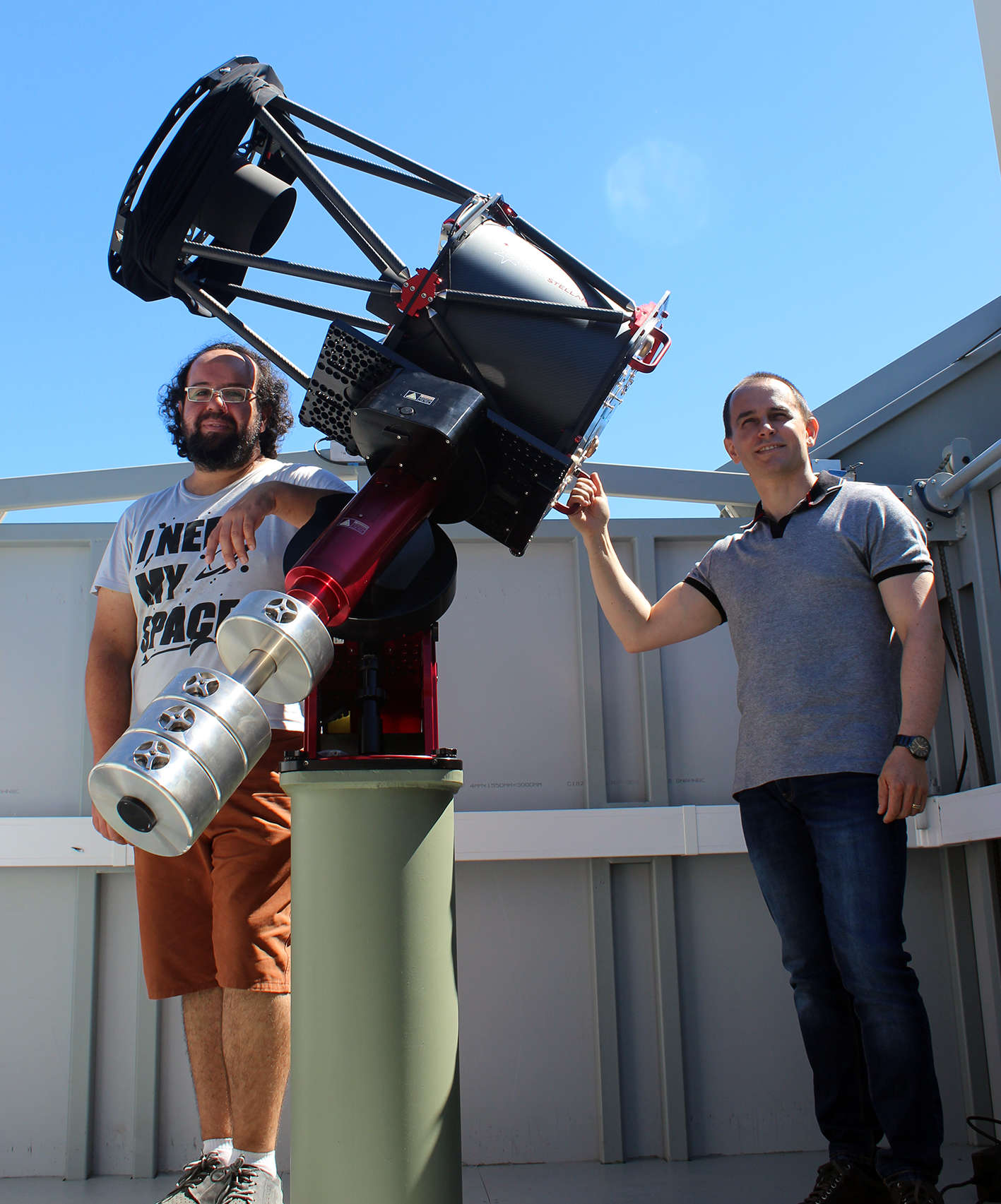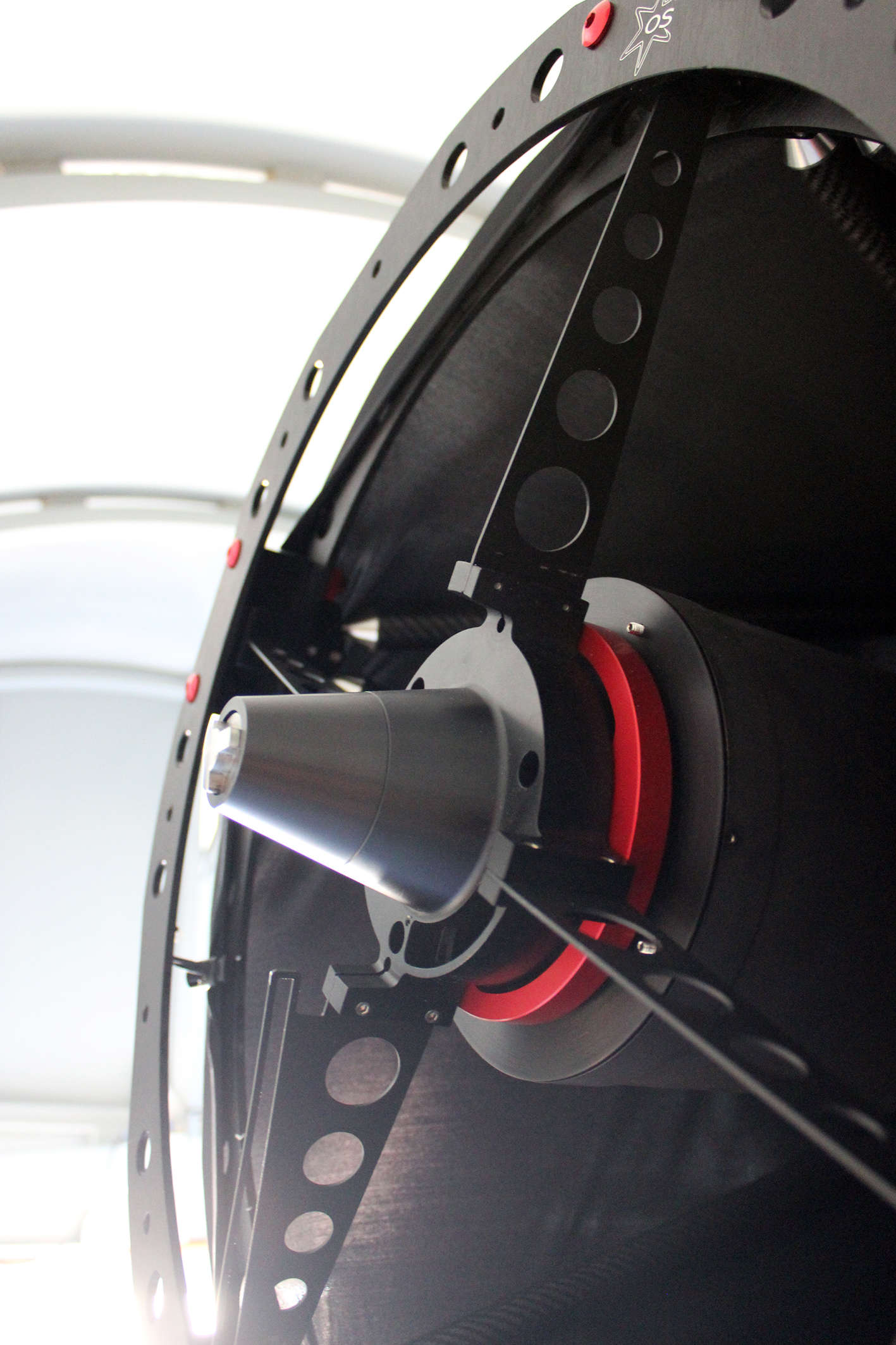January 28, 2019
Astronomy Department UdeC adds a new telescope for teaching and research

The Astronomy Department at Universidad de Concepción adds a new instrument for scientific development to its facilities: a 40-centimetre diameter catadioptric telescope (which uses mirrors and lenses to capture images) that is remotely operated.
The idea came up a few years ago, when Dr. Douglas Geisler had the idea to acquire a telescope with technological capabilities to support teaching and research. Then, Dr Sandro Villanova, the project's executive director, made the necessary arragenments to acquire the telescope. "A year and a half ago, I started making inquiries, I contacted Officina Stellare, an italian business that designs and manufactures this kind of technology, and I took charge in defining the telescope's size, mount, cameras, filters and other technical details according to the budget we had", In this way, the telescope arrived in Chile at the beginning of 2018. Recently, it was installed at the scientific platform WenuLafquen at UdeC and it lies inside a dome for its protection.
The project cost $120,000 and was funded by BASAL AFB-17002.
Until 2018, the Astronomy Department had five telescopes: one refractor, one reflector, and three catadioptrics, the largest has 27-centimetre diameter used for outreach and teaching located at Facultad de Ciencias Físicas y Matemáticas. However, the presence of light pollution and environmental conditions produced limitations when astronomical observations were conducted; something that will change with the new equipment.

For Mr. Fernando Cortés, in charge of telescopes, the new 40-centimetre optical telescope greatly enhances both teaching for students and research development. "It will no longer be necessary to travel to the observatories in the northern Chile for certain sessions of the Bachelor's in Astronomy, which will save money and time, besides the astronomical science development from Concepción", explained.
Furthermore, for research, this new telescope allows remote control, which removes the need of an astronomer inside the facilities and adds professional efficiency. Its environment, being less light polluted, favours better images and data, allowing for the study of star clusters, variable stars, planets, star-forming regions and nearby galaxies.
It is significant to point out that the scientific platform, WenuLafquen, has a criogenic station, a microwave laboratory and a 3-metre radiotelescope. These equipment transforms UdeC into the only academic institution in the region with this kind of instrumentation and observatories.
The next steps are the installation of comunication networks, both electrical system and software, for setting up the telescope, which is expected to take place in the first semester of 2019.
Comunicaciones Astronomía UdeC




